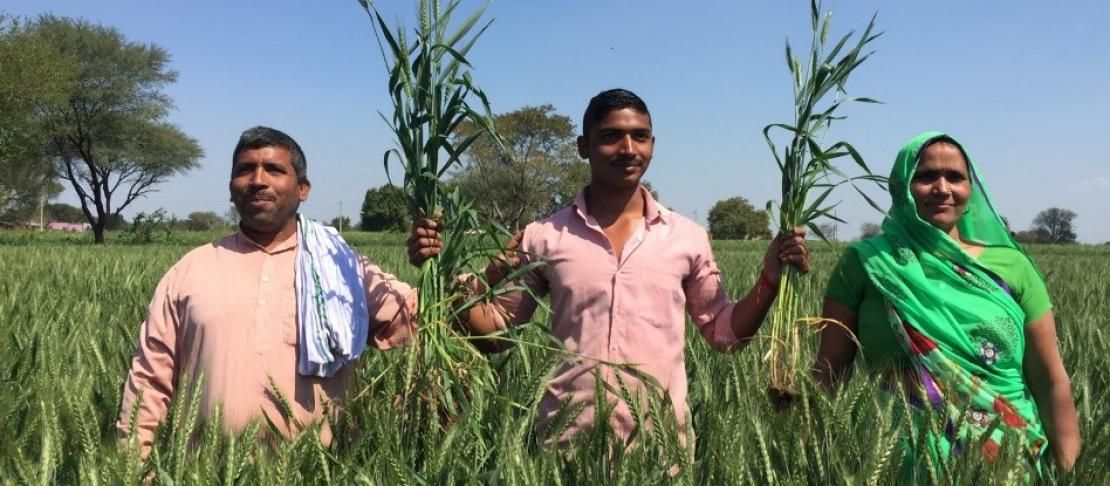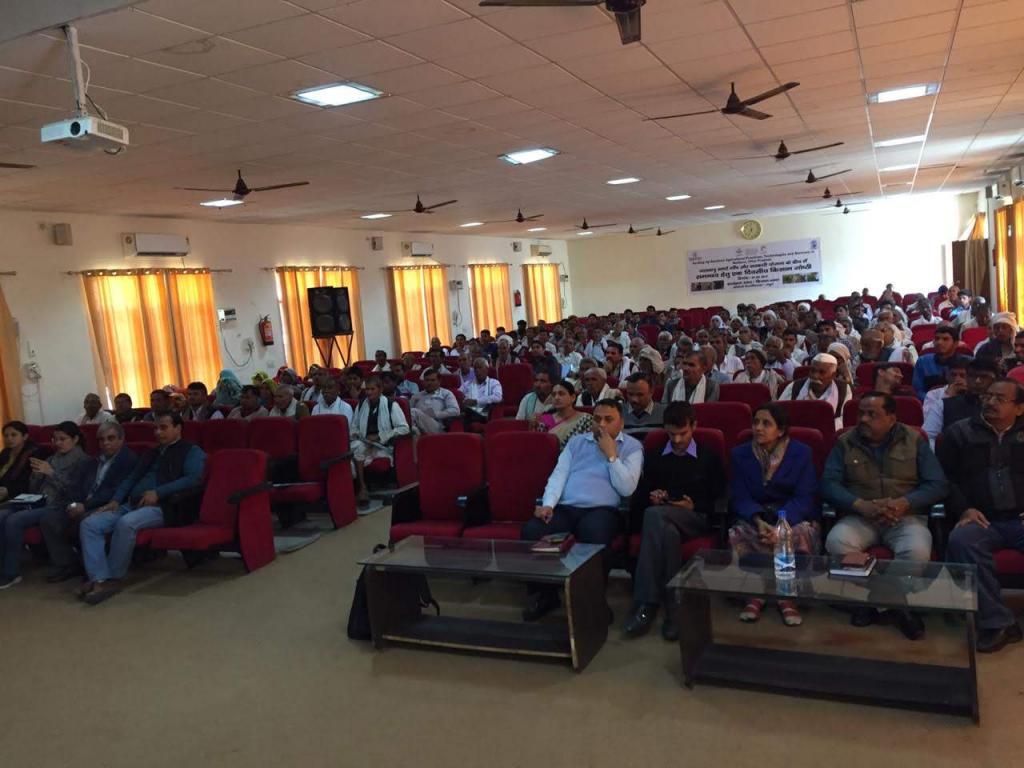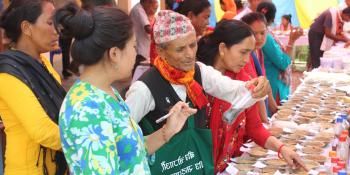Meeting farmers in Indian Climate-Smart Villages

Project partners visit Climate-Smart Villages in Mathura district in Uttar Pradesh to witness a portfolio of adaptation interventions in livestock and crop production systems
In 2016, the CGIAR Research Program on Climate Change, Agriculture and Food Security (CCAFS) in South Asia partnered with the United States Agency for International Development (USAID), to scale out the Climate-Smart Village (CSV) approach in India. The three-year project aims to build climate resilient agricultural systems through the promotion of climate-smart agricultural (CSA) technologies and practices. The project encompasses a cluster of 75 villages across three states of Madhya Pradesh, Bihar and Uttar Pradesh in India. Now, as the project nears completion, project partners from USAID, CCAFS and BAIF made a three-day visit to Mathura during 5-7 March, 2019 to get a glimpse of the progress made.
Fruits of adaptation
The visit commenced with a trip to the village of Ashagadhi in Baldeo block. There, the super champion farmer and his fellow champion farmers briefed the visitors about their experiences with the new practices and technologies that they have adopted in the last two years for crops as well as livestock. Baldeo block in the district of Mathura is highly prone to climatic risks including pre-monsoon drought, high intensity rainfall and heatwaves affecting agricultural production. Through the project, farmers in the district have adopted CSA interventions including improved seeds, natural pest management, integrated nutrient management, crop insurance and ICT based agro-advisory. As a result, they have seen improved yields and income along with reduced input costs in the major crops of wheat, bajra and potato.
The visitors also met with the members of a women led Custom Hiring Center (CHC) which plays a key role in scaling out CSA technologies for climate risk adaptation in the project areas. The CHC, comprising of 12 members, owns six types of CSA technologies which is used by the members as well as provided to other farmers for a rent. The women explained how CSA technologies including harvesting machine and cono-weeder have reduced their labor hours in the field, giving them more time to spend on the group meetings and activities. They also spoke about the financial benefits of membership.
We did not even know where the bank is located. Now we have learned how to open and operate an account also. We want to save the income we get by renting out CSA to buy more equipment so that we can earn more”
A members explaining how the group managed the income earned.
The field visit team also observed the workings of a Cattle Development Center (CDC) in the CSVs. The technician operating the centre explained all services provided by the CDC to the farmers including provision of mineral mixtures, goat development, health facilities through health camps, livestock breed improvement, vermicompost preparation and biogas to the farmers. Through the CDC, farmers have been able to provide better feed and health services to their animals and are consequently witnessing improved milk yields.
Nurturing community interactions

Partners meeting with farmers and government officials. Photo: BAIF Development Research Foundation
To ensure sustainability of adaptation interventions, this CSV project is facilitating convergence with multiple government departments and programmes related to agriculture and climate change. To further strengthen this linkage, a farmers meeting was organized, during the field visit, in collaboration with the local agriculture extension science centre. More than 200 farmers attended the meeting along with government officials from agriculture and allied departments, private sector players, and implementing partner representatives. Information about different governmental programs and schemes related to soil, water and energy management, pest control, agriculture input, and credit for farmers was shared by representative of governmental departments. Some farmers from the CSVs shared personal experiences with the larger group on the benefits of changing their practices and how that prevented potential damage from climate risks.
Overall, the field visit was successful in showcasing positive results and outputs from the different activities and was appreciated by all partners.
Read more:
- Info Note: Integrating Gender into the Climate-Smart Village Approach of Scaling out Adaptation Options in Agriculture
- Brochure: Scaling up resilient agricultural practices, technologies and services in the vulnerable areas of India
- News update: Sunshine may pave the way towards a climate resilient future
Nitya Chanana is a Research Consultant on Gender and Social Inclusion for CCAFS South Asia. Arun Khatri-Chhetri is a Science Officer for CCAFS South Asia.



